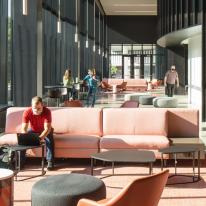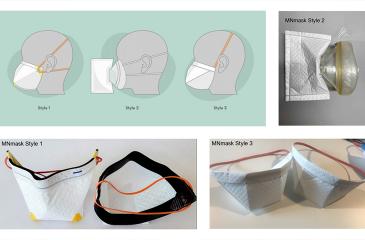Yesterday I had the pleasure of celebrating the creation of a new center co-led by the University’s Institute for Engineering in Medicine (IEM). The center is funded by a $26 million grant from the National Science Foundation over five years and brings together collaborators from Massachusetts General Hospital (co-leader), and the University of California (Riverside and Berkley campuses). This is one of only four NSF-funded centers that will be created over the next five years.
The official name is the NSF Engineering Research Center (ERC) for Advanced Technologies for the Preservation of Biological Systems (ATP-Bio). So we’ll be calling it ATP-Bio….
The ambition of ATP-Bio is breathtaking in scope and potential. So much so that its vision―developing and deploying technology to “stop biological time” through temperature control (bio- or cryo-preservation of biological systems)―can be compared to another moonshot. Remember how the space program spun off things like memory foam, freeze-dried food, and scratch-proof lenses? It is that big and comprehensive. Its reach extends from drug discovery to cell therapies to feeding the world through sustainable aquaculture. It includes an educational component to ensure that we have future generations of scientists to carry on the work, and it actively builds and incorporates a culture of inclusion.
The IEM website has fantastic materials about the center (links shown above), so please check it out, watch the video, and learn how your own area of expertise might fit into this picture.
Lastly, I want to say that this is a perfect example of the kind of research ambition that promises to have impact on healthcare, our society, and the world.
Congratulations to IEM and their partners!
Jakub Tolar, MD, PhD
Vice President for Academic Clinical Affairs

Faculty Research Development Grants Now Open
The Office of Academic Clinical Affairs is soliciting applications for Faculty Research Development grants that will support new or expanding interdisciplinary research that addresses significant clinical issues, is innovative, and has a high potential for return on investment. The deadline to submit a competitive LOI is Sept. 25, 2020.

Set Up Your UMN Zoom Account Today
Zoom is the University’s online meeting tool, used for everything from delivering course lectures to conducting team meetings. If you are new to the University and haven’t set up your Zoom account, to ensure your access, we strongly recommend that you set up your account at least two days before you need to use it. To set up your account, visit Zoom.umn.edu and sign in with your University of Minnesota Internet ID and password. Please note: After you sign in, people who work and study in the Health Sciences and are in the BAA or BAA+ or have access to personal health information will be prompted to take a 10-minute training about how to use Zoom securely. After training is complete, it may take up to one business day before you receive your Zoom account activation link by email.

Ghana NGO Partnership
The Center for Global Health and Social Responsibility (CGHSR) is partnering with the Medical and Surgical Skills Institute (MSSI) in Ghana to deliver online COVID-19 training. The MSSI is a health training center based in Ghana that provides medical and surgical skills training using modern equipment and technology in order to advance health care in West Africa.

Virtual CPR Training
When the COVID-19 pandemic hit, the staff at the Center for Resuscitation Medicine quickly realized that CPR training came to a hard stop—and they knew they needed to find an alternative to the vital face-to-face trainings. Through its partnership with the Office of Academic Clinical Affairs, the Center for Resuscitation Medicine is committed to advancing research, education and community engagement—and is a first of its kind center in the U.S. dedicated to innovative research, world-class training and clinical leadership to improve outcomes for sudden cardiac arrest.

HSEC Heralds A New Beginning
Today’s new models of health care require different professions to work together using new strategies and technologies. The new Health Sciences Education Center signals a transformation in health sciences education and brings together all of the health sciences schools and affiliated programs at the University of Minnesota.



